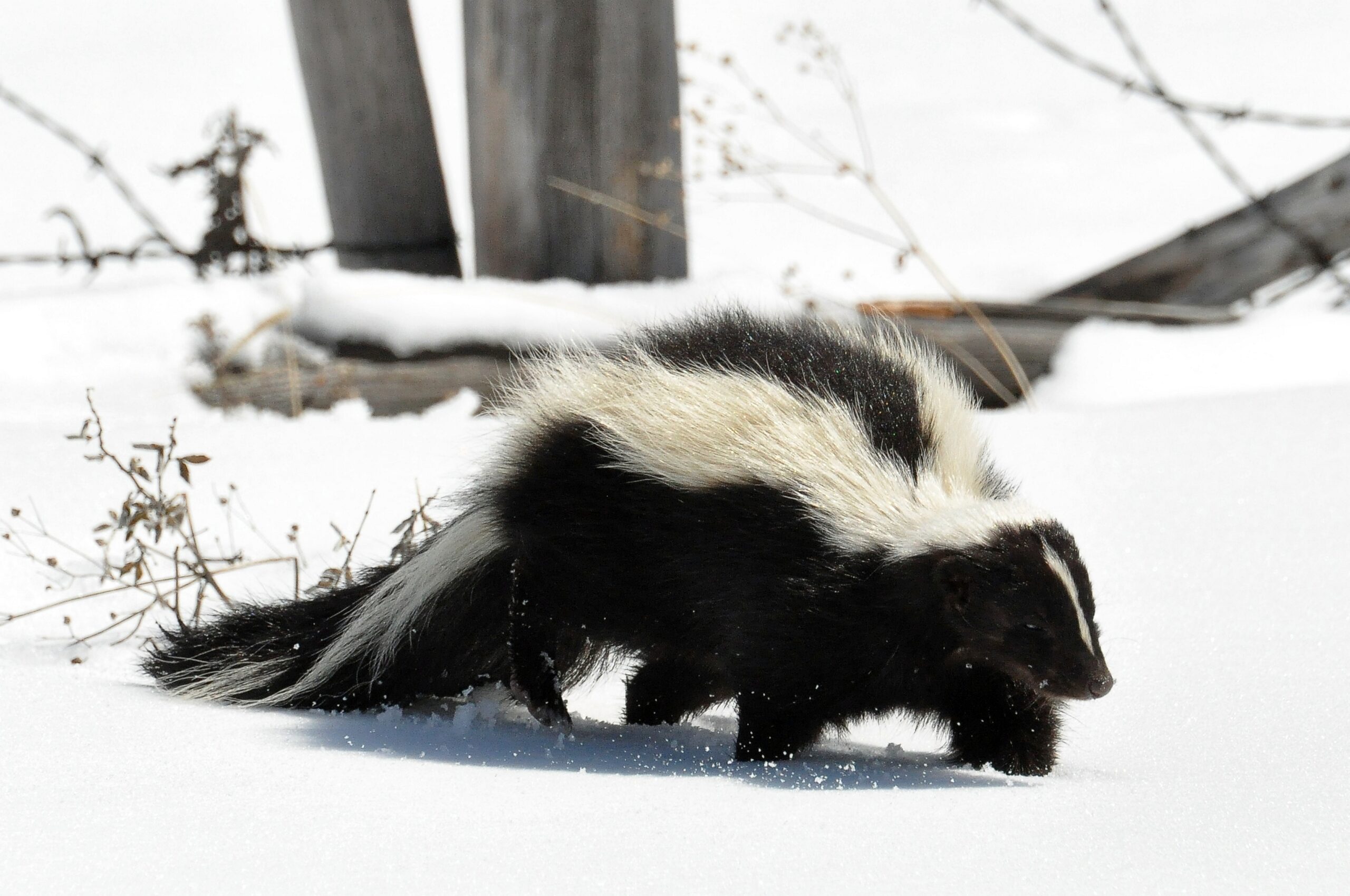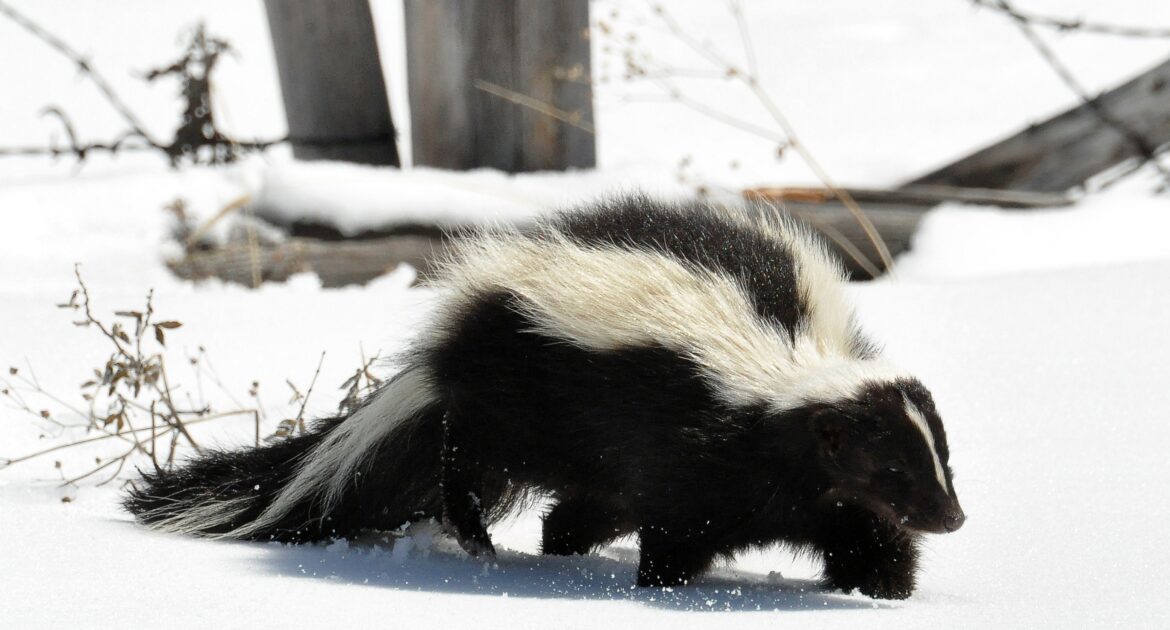Skunks are shy, nocturnal creatures, so you may not spot them often most months of the year, but skunks in the winter are even more elusive. In the coldest months of the year, they hole up in a comfortable, warm den and spend much of their time conserving energy.
Do skunks hibernate? Not quite. They go into a similar state called torpor. Find out where these stinky critters hunker down during a Milwaukee winter, ways to prevent them from making themselves at home on your property, and what to do if it’s too late for prevention.
Where Do Skunks Winter?
Striped skunks usually occupy several dens over the year, moving dens if they feel their current one is threatened or insufficient. During the cold months, skunks seek residence in places that offer warmth and security. In urban areas, some of their favorite places to den are under people’s porches and decks for added protection from the cold and snow they provide. Fortunately, skunks aren’t good climbers, so you won’t find them in your attic.
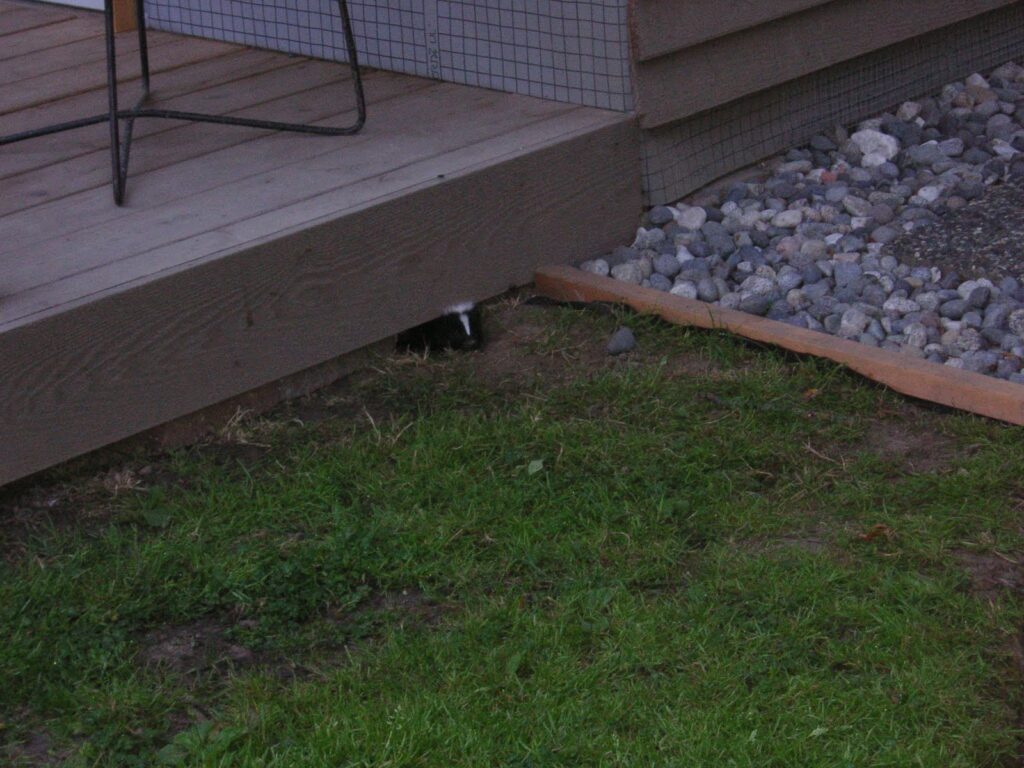
When the temperature drops, a skunk prepares its den using leaves and grass to block the entrance and keep out the cold air. Sometimes striped skunks burrow with each other to stay warm, but male skunks won’t den together in any other season — they are tolerant of one another’s presence only during wintertime.
How Do Skunks Survive the Winter?
The winter denning season lasts five months, from November to March. Before the cold weather strikes, skunks spend time eating as much as possible to build up fat stores. As the temperatures drop, they spend more time in their dens. Instead of hibernation, they spend time in torpor. In this state, all their body functions slow down, allowing them to conserve energy when food sources are scarcer.
Torpor doesn’t last as long as hibernation, but their time in the state depends on food availability and temperature. During the winter months, skunks wake up when the temperatures warm up or when they need more calories since they cannot consume large enough food in the fall to keep them full the whole season. This generally happens at night, so you may not see a skunk in your yard during the day, even if there is one.
Why Do You Want To Keep Skunks From Denning on Your Property?
Skunks aren’t aggressive animals and generally look for the quickest escape route when encountering other animals, including the human variety. Their primary defense is their notoriously foul-smelling spray, which can be detected as far as a mile away. Skunks only take aim when they feel threatened or are protecting their little ones, as it takes between 10 and 14 days to replenish. However, if you or your pet startles or frightens a lone skunk or a mother with kits, you risk getting sprayed, and skunks can hit their targets from 10 feet away.
In addition to causing a stink, skunks can do some damage if they dig their burrows where there is wiring, venting, or plumbing. They may not be good climbers, but their sharp claws are made for digging. They can also tear through wood, vents, and soft metals. Their claws can also do some serious harm if you corner one and it feels the need to attack.
Skunks carry rabies, and though skunk bites are rare, they may use their teeth to fend off a threat. Another disease risk from these critters comes from their urine and feces. Their waste may contain roundworms or carry pathogens that cause leptospirosis and canine distemper.
How Do You Prevent Skunks From Denning on Your Property?
You can take measures to prevent these stinky but docile critters from creating a winter home under your deck, porch, garage, or shed. Implement the following DIY measures to deter skunks before the first signs of winter appear:
-
Protect your gardens with chicken wire
-
Keep your grass trim
-
Store pet food indoors
-
Ensure garbage and recycling bins have latching lids
-
Remove lawn debris from the yard and under decks and porches
-
Install motion sensor lights around your home’s exterior
-
Block off openings to decks and porches with heavy-gauge wire mesh, burying the bottom in the ground to prevent skunks from slipping under
Before blocking any potential denning spots, make sure you don’t already have skunky guests hanging around.
If you have a skunk in residence, you can attempt to get it to leave by opening up the den, making loud noises, or placing rags soaked in apple cider vinegar near the burrow site. However, if kits are in the den, you may be in danger. Your safest course of action is to contact professionals in humane skunk removal to ensure these animals are evicted safely and allowed to continue doing what they do away from your home.
Is Getting Rid of Skunks Before Winter Necessary?
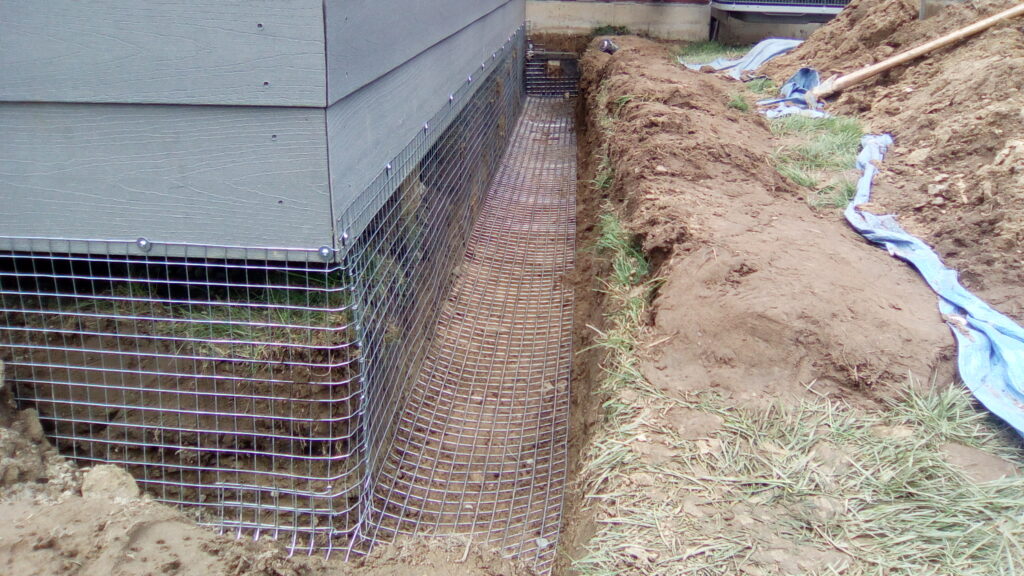
Of course, it is much easier to notice when a skunk finds its home in your yard during summer – during wintertime, it is not that easy. If you have heard from your neighbors that they have problems with skunks, you need to be proactive in identifying any trouble before the winter sets in.
If you discover skunks on your property, you want to get rid of them before winter hits. When skunks are in torpor, they are defenseless. Additionally, it takes significant energy to locate a new, suitable den and prepare it for the cold. Skedaddle provides expert humane skunk removal to ensure the critters remain safe and have time to find a new den.
Where Can You Get Help With Preventing Unwanted Skunks in Winter?
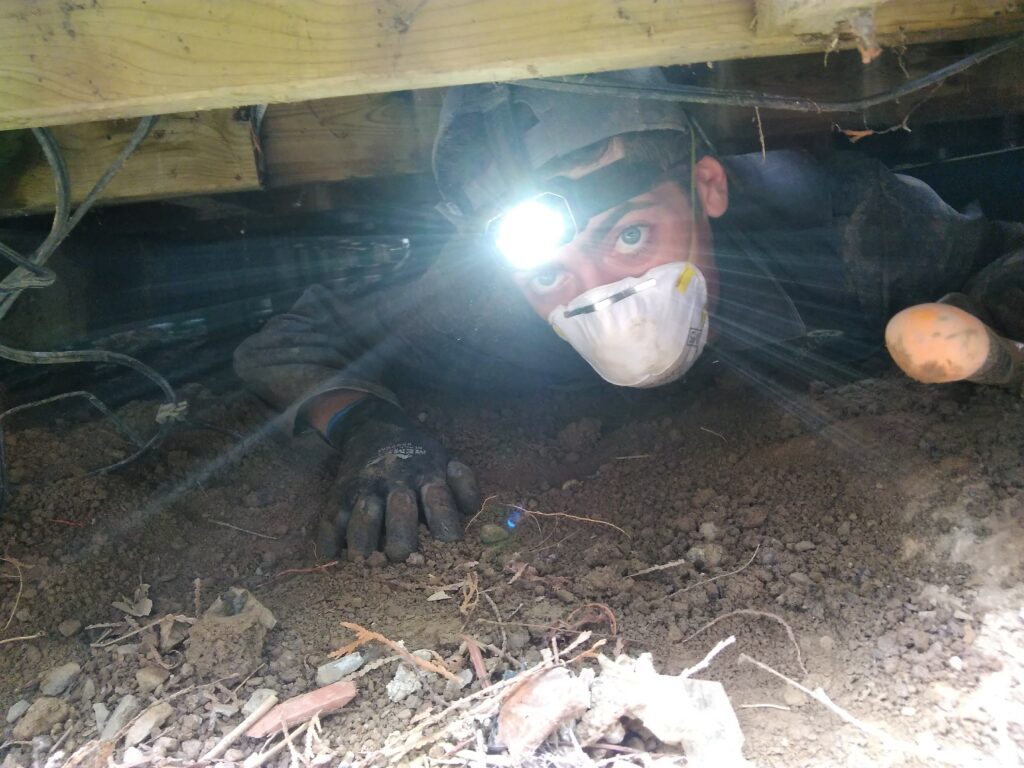
Skedaddle Humane Wildlife Control is here to help you prevent skunks in winter. Our technicians know how to identify current or potential skunk dens. They thoroughly assess your property to determine if you have a resident skunk and whether there are kits in the den, focusing on the ground level since skunks don’t climb.
Once our technicians locate the skunks, they use humane skunk removal techniques, placing any little ones in a special baby box so mom can retrieve them and move them to a new den. They also clean up any hazardous waste and seal the burrows to prevent a return.
Get in touch with us today to schedule services in Milwaukee.
